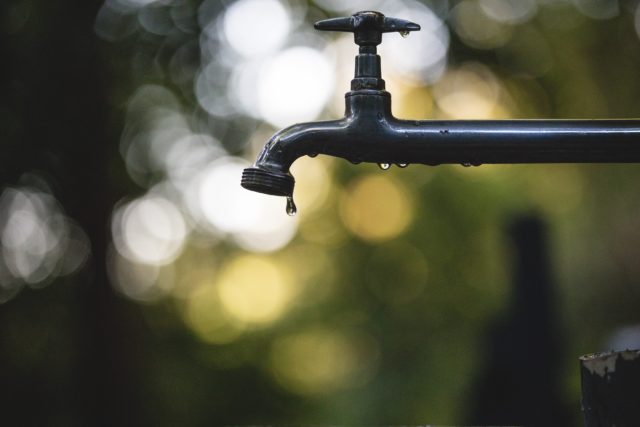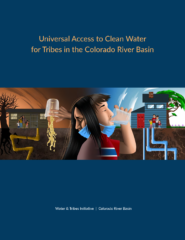Across the United States, nearly half of Native American households do not have access to reliable water sources, including clean water and basic sanitation. While strong family bonds, tradition, culture and connection to the land are sources of pride at home, the buildings may lack indoor plumbing, as well as a connection to a piped water delivery system. Existing water infrastructure is often inadequate or deteriorating, creating challenges for tribes to maintain or expand their water systems.

A recent report published by the Water and Tribes Initiative describes how these challenges manifest in the Colorado River Basin and brings attention to how the COVID-19 pandemic has underscored the need to improve access for many tribal sovereign nations to clean and reliable sources of drinking water. Throughout the pandemic, social and racial injustice and inequity have been brought to the forefront of public health.
Existing water infrastructure is often inadequate or deteriorating, creating challenges for tribes to maintain or expand their water systems.

The Water and Tribes Initiative brings tribes and other groups in the basin together to advance tribal leadership on water management issues and to promote policies that encourage sustainable water use. The authors of the report suggest solutions beginning with improved coordination among federal agencies. At least seven agencies oversee more than 23 tribal programs related to drinking water and sanitation, so the authors recommend combining forces by pooling funding and consulting with tribes to make application requirements accessible to help more people access clean, reliable water.
Congress has a role to play by providing adequate funding for new infrastructure and training tribal staff to build, manage and repair water systems because unmet tribal water and sanitation needs are estimated to be more than $7.5 billion. The good news is that the U.S. Senate has authorized an initial down payment of $250 million for tribal infrastructure as part of a bipartisan $35 billion water infrastructure bill passed in April, which is now being considered by the U.S. House of Representatives.
Congress has a role to play by providing adequate funding for new infrastructure and training tribal staff to build, manage and repair water systems.
A more ambitious bill will be introduced by Senator Bennet from Colorado, which aligns more closely with actual tribal funding needs. This bill may eventually be folded into either President Biden’s $2 trillion American Jobs Plan or in the President’s 2022 budget. Read the full report: Universal Access to Clean Water for Tribes in the Colorado River Basin by the Water and Tribes Initiative

Sonoran Institute recognizes that a resilient Colorado River Basin will require solving long-standing inequities in tribes’ access to clean water. We believe the findings in the Water and Tribes Initiative’s report deserve strong consideration: leadership from Congress and the federal administration is needed to develop the infrastructure and capacity necessary to provide reliable, clean drinking water in tribal communities.
Read the full report: Universal Access to Clean Water for Tribes in the Colorado River Basin by the Water and Tribes Initiative
Blog post by: John Shepard, senior adviser
